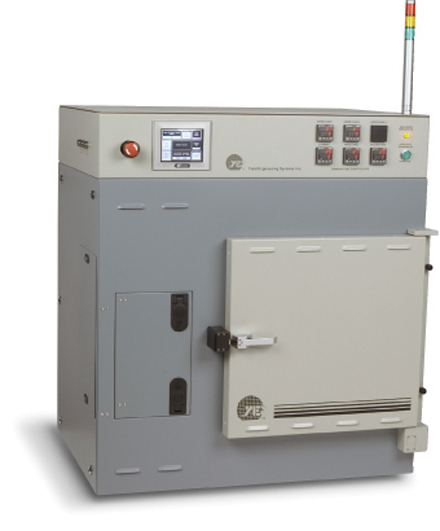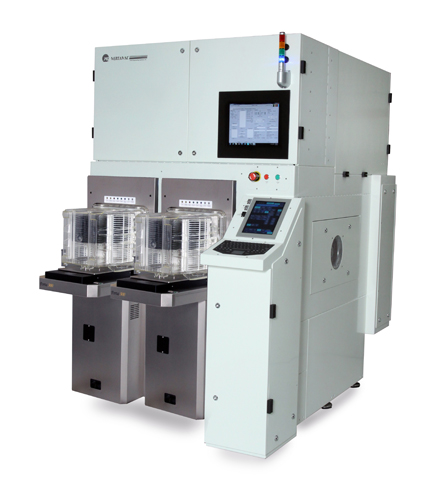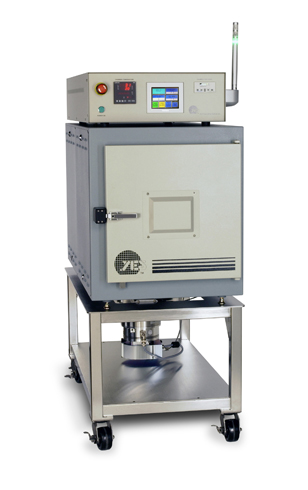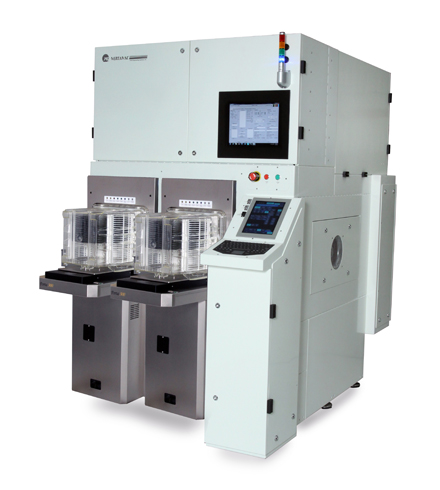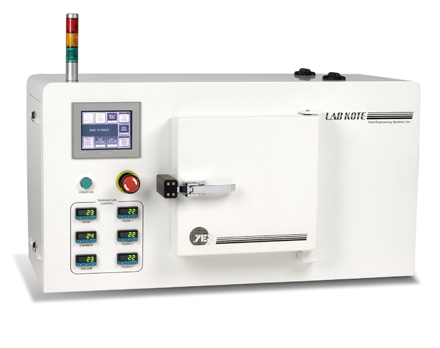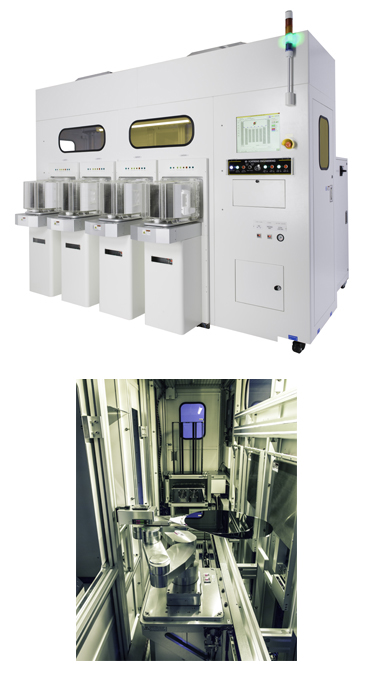YES-EcoCoat (manual)
YES-ÉcoCoat (formerly YES-1224P)
Process Management Software (option)
Two Silane CVD Treatment (published article)
CVD of Three Aminosilanes (published article)
Subsurface Oxidation (published article)
Characterization of Thin Films & Materials (published article)
YES vapor deposition systems provide total environmental control over the deposition process and accommodate a variety of functionally diverse silanes, for a variety of processes, on a variety of surfaces.
YES works collaboratively with Brigham Young University, Department of Chemistry and Biochemistry to develop and prove processes using the YES-ÉcoCoat. Read more about the collaboration here.
The YES-ÉcoCoat manual batch load, vapor phase deposition system is designed for today’s leading technology products that require precise surface modification over nanoscale surface areas. Whether it’s molecular specific bonding sites for DNA microarrays or to reduce stiction for MEMS devices, the capability to use a large number of different organosilanes provides the ability for precise surface modification. Flexibility of production is assured with an optional chemical delivery system that can handle up to 3 different chemicals and 3 different gases in a precise controlled operation.
Our manual load YES-ÉcoCoat Vapor Phase Deposition System is designed for versatile volume production with its configurable large capacity chamber. The flexibility of the chemical delivery system to use a wide range of organosilanes in small sample size bottles enables their efficient evaluation for precise surface modification research at low cost. Also, hydration of the surface can be controlled so that the vapor deposition coating provides a superior silane/substrate bond that is stable after exposure to atmospheric moisture, extending the time available between process steps. Incorporating a plasma cleaning function into the YES-ÉcoCoat enables the cleaning of the substrate prior to silane vapor deposition.
Reproducibility is crucial in the manufacture of products for the medical industry and the MEMS industry. Our tools are designed to control the process environment, so results are precisely reproducible, substrate to substrate and run to run.
Medical Industry Applications
- DNA and oligonucleotide adhesion
- APTES and similar aminosilanes provide molecular specific bonding sites for microarrays. The controlled process environment assures consistent deposition for the self-assembling monolayer films.
- Glass slide surface modification
- Methoxysilanes and ethoxysilanes offer a variety of functional groups to provide precise surface modification, resulting in improved sample adhesion. The quality of glass slides can vary in quality from batch to batch. The plasma clean properly prepares the substrate for consistent surface modification.
- Antifouling coating for medical devices
- Surface modification for biocompatible materials to minimize the buildup of proteins.
MEMS Applications
- Wafer dehydration
- The moisture on the surface of wafers will cause unintended reactions with various deposition steps. These reactions result in unstable surface which degrade over time. Vacuum dehydration provides a clean stable starting surface resulting in superior films.
- Surface Tension Modification
- As devices are made smaller and smaller, static friction (stiction) becomes more and more significant. By modifying the surface tension with a class of fluorinated organosilanes, the operating life of moving parts in MEMS devices can be significantly lengthened. A large variety of organosilanes can be used to produce a spectrum of hydrophobic surfaces which reduce stiction for MEMS devices.
- Conversely, if surfaces need to be bonded together, other organosilanes can be coated which enhance bonding strengths between unlike materials.
Common Applications
- Surface modification to prevent or promote adhesion
- BioMEMS and biosensor coating to reduce “drift” in device performance
- Promote biocompatibility between natural and synthetic materials
- Anti-corrosive coating
YES Vapor Phase Deposition System Benefits
- Chemical deposition uniformity
- Contact angle control within +/- 3 degrees
- Moisture resistant surface modification
- More time available between process steps
- Promotes Silane/substrate bonds
- Angstrom-level thickness control
- Increased MEMS and bioMEMS reliability
- Reduced chemical usage over wet chemical modification
- Plasma cleaning option ensures a consistent substrate surface
YES-ÉcoCoat is designed to achieve tight control over your process conditions:
- Controlled temperature ramp up and cool down (up to 200ºC)
- Controlled hydrolysis process due to a dry inert ambient
- Precise amount of liquid is vaporized for consistent deposition
- Reproducible process results with process step control for:
- Speed of liquid injection
- Vaporization chamber temperature
- Vapor line temperature
- Process vacuum chamber temperature
- Process starting pressure
- Process time for vapor deposition
- Surface preparation with plasma process
Vapor Deposition Process
Dehydration followed by silane vapor deposition coating provides a superior silane/substrate bond that is stable after exposure to atmospheric moisture, extending the time available between process steps. Chemical usage for a vapor deposition process is typically less than 1% of the amount needed for wet application processes, significantly reducing waste and chemical costs.
The vapor deposition process begins with vacuum chamber cycle purges to dehydrate the product. The chamber is evacuated to low pressure and refilled with pure nitrogen several times to completely remove water vapor. Nitrogen is preheated, which helps heat the product.
Once cycle purges are finished, the YES-ÉcoCoat pumps the chemical directly from the source bottle to the heated vaporization chamber without exposing the chemical to moisture.
YES-ÉcoCoat accommodates two chemical source bottles (option for 3) as well as wide variations of vapor pressures among different silanes. Processes are easily programmed using a touch screen operator interface.
- Glass slide surface modification
- APTES and similar aminosilanes provide molecular specific bonding sites for microarrays. The controlled process environment assures consistent deposition for the self-assembling monolayer films.


